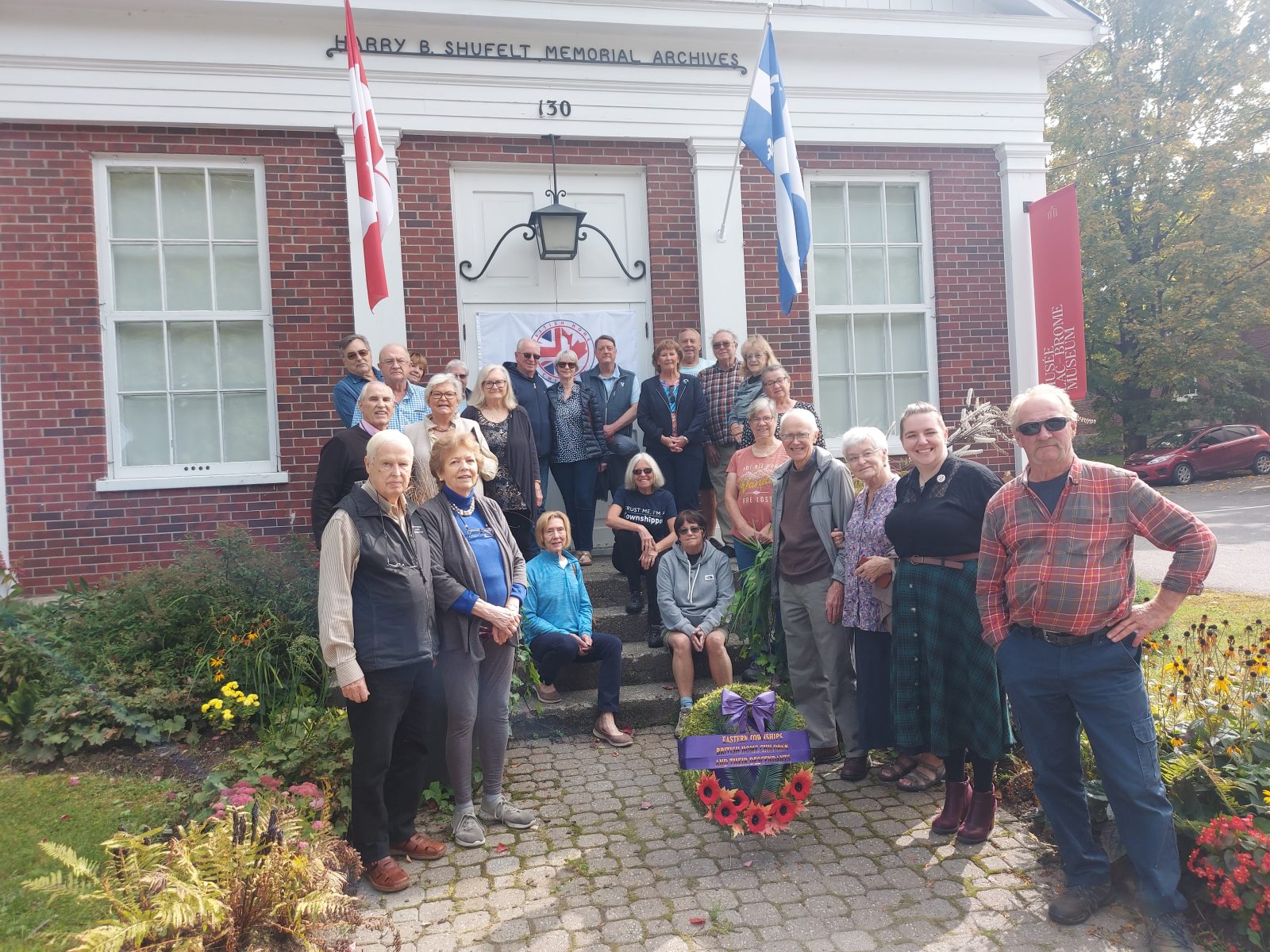By William Crooks
Local Journalism Initiative
A wreath was laid at Brome Lake Museum Sept. 28 for Eastern Townships’ “home children”, children sent from the United Kingdom (UK) between 1869 and 1948 across the Commonwealth. The Record attended and spoke with museum curator Rachel Lambie. Around 25 gathered for the occasion.
Home children
“It is to commemorate the British home child program and all of the children that came over,” Lambie began, referring to the wreath-laying event. Almost 100,000 children came from the UK to Canada. Many went to Ontario, but some came to the Eastern Townships. There were two official distributing homes in the area, one in Knowlton and one in Sherbrooke. There were a few unofficial homes as well, like the one in Melbourne.
The children were destitute or orphans that were sent to a sheltering home in the UK. Everyone that arrived in the Eastern Townships was from Liverpool or London. Non-orphaned children were often expected to return but never did. Nearly 5,000 children came through Knowlton. Many, but not all, of the children settled in Brome County came through the Knowlton home.
“The homes weren’t always happy,” she explained. Sometimes the children were “welcomed with open arms” and treated like an adoption, other times their new home was abusive, and they were treated like indentured servants.
Every year, since 2019, a wreath-laying and commemoration has been done on or near Sept. 28, which has been deemed by the government as British Home Child Day, she continued.
The sending of children across the seas to new homes was due to Irish immigration into England after the famine. There were many children on the streets. Several different charities instituted the program; for this area, it was primarily Annie Macpherson. Initially, the children were put in sheltering homes in England. The Liverpool sheltering home filled up almost immediately, so the extra ones were sent abroad to Canada, Australia, and Rhodesia (now Zimbabwe). While the program continued overall until 1948, children stopped arriving in Knowlton in 1915.






